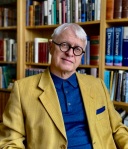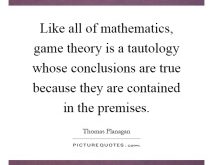.[embedded content]
Read More »Poverty in Britain
.[embedded content] 1-in-4 people in the UK live below the poverty line. Around 15 million people were living in poverty in 2021/2022, according to the government’s annual ‘households below average income’ report. That is outrageous!
Read More »The 25 Best Econometrics Blogs and Websites
The 25 Best Econometrics Blogs and Websites Yours truly, of course, feels truly honoured to find himself on the list of the world’s 25 Best Econometrics Blogs and Websites. 2. Bruno Rodrigues 8. Eran Raviv Blog Statistics and Econometrics 13. How the (Econometric) Sausage is Made 14. Lars P Syll Pålsson Syll received a Ph.D. in economic history in 1991 and a Ph.D. in economics in 1997, both at Lund University. He became an associate professor in economic...
Read More »The difference between logic and science
The difference between logic and science That logic should have been thus successful is an advantage which it owes entirely to its limitations, whereby it is justified in abstracting — indeed, it is under obligation to do so — from all objects of knowledge and their differences, leaving the understanding nothing to deal with save itself and its form. But for reason to enter on the sure path of science is, of course, much more difficult, since it has to...
Read More »A Night at the Roxbury
A Night at the Roxbury .[embedded content]
Read More »La teoría de juegos — una nota al pie en la historia de las ciencias sociales
La teoría de juegos — una nota al pie en la historia de las ciencias sociales Siendo en su corazón una subdisciplina dentro de las matemáticas puras, los teóricos de juegos no están demasiado preocupados por si la teoría de los juegos representa fenómenos del mundo real. Bien. Pero como la mayoría de los científicos sociales tienen una opinión diferente, los teóricos de juegos también deben aceptar que, para la mayoría de los científicos sociales, la teoría...
Read More »On the art of reading and writing
On the art of reading and writing How should one approach reading? It’s probably a common pondering that everyone has had at some point about our attitude towards literature and reading. I myself find reason to contemplate this when my beloved — who tirelessly devours new books at a rapid pace — once again tries to persuade me to put back August Strindberg’s Röda rummet, Hjalmar Söderberg’s Martin Bircks ungdom or Selma Lagerlöf’s Gösta Berlings saga in the...
Read More »Non-ergodic economics, expected utility theory and the Kelly criterion (wonkish)
Non-ergodic economics, expected utility theory and the Kelly criterion (wonkish) Suppose I want to play a game. Let’s say we are tossing a coin. If heads come up, I win a dollar, and if tails come up, I lose a dollar. Suppose further that I believe I know that the coin is asymmetrical and that the probability of getting heads (p) is greater than 50% — say 60% (0.6) — while the bookmaker assumes that the coin is totally symmetric. How much of my bankroll...
Read More »‘Testing’ purchasing power parity theory
‘Testing’ purchasing power parity theory Purchasing power parity doctrine is examined by sophisticated statistical and econometric techniques. The time series of aggregated price levels and the nominal exchange rates are treated as a random sample. Most papers of this type deal with the technical properties of the slightly different data sets. To take some examples (at random): “Two potential problems arise when working with nominal exchange rates and...
Read More »Economics and reality
For a good many years, Tony Lawson has been urging economists to pay attention to their ontological presuppositions. Economists have not paid much attention, perhaps because few of us know what “ontology” means. This branch of philosophy stresses the need to “grasp the nature of the reality” that is the object of study – and to adapt one’s methods of inquiry to it. Economics, it might be argued, has gotten this backwards. We have imposed our pre-conceived methods on economic...
Read More » Lars P. Syll
Lars P. Syll






